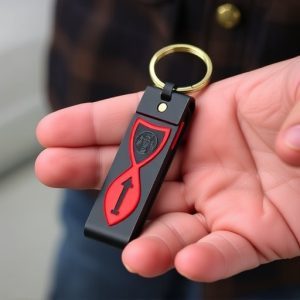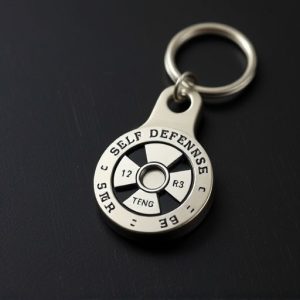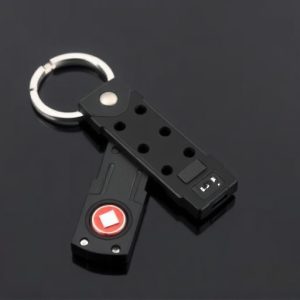Self-Defense Keychain Legal Requirements: State-by-State Guide to Permitted Tools
Understanding state laws regarding permitted self-defense keychain tools like pepper spray, flashlig…….
Understanding state laws regarding permitted self-defense keychain tools like pepper spray, flashlights, and tactical pens is crucial for legal compliance and personal safety. Variations in legislation across the US mean what's allowed in one state might be restricted in another, with factors like size, capacity, tool type, age, permit, and training influencing legality. Staying informed ensures you're carrying legal self-defense tools, enhancing personal safety while avoiding potential legal issues.
“Uncover the legal aspects of self-defense keychains with our comprehensive guide. ‘Understanding Self-Defense Keychain Laws’ explores the intricate details of what tools are legally permitted on your keychain for personal protection, varying across different states.
This article breaks down the state-by-state legal requirements, ensuring you’re informed about your rights and the allowed self-defense keychain tools. From non-lethal options to more substantial weapons, we navigate the legal landscape to help you stay safe.”
- Understanding Self-Defense Keychain Laws: A Comprehensive Overview
- What Tools Are Permitted on Your Keychain for Self-Defense?
- Navigating Legal Requirements: State-by-State Breakdown
Understanding Self-Defense Keychain Laws: A Comprehensive Overview
Self-defense keychains are small, portable tools designed to protect individuals in emergency situations. Understanding the legal requirements surrounding these devices is crucial for ensuring their usability and legality. Laws regarding self-defense keychains vary significantly from state to state, with some permitting specific types while others impose restrictions.
Permitted self-defense keychain tools typically include items like pepper spray, flashlights, and tactical pens. These tools are considered legal when used responsibly and in accordance with local regulations. However, it’s essential to familiarize yourself with the specifics of your state’s laws, as some regions may have limitations on the amount of pepper spray allowed or restrictions on carrying tactical pens as self-defense weapons. Staying informed ensures that you possess and use only legally permitted self-defense keychain tools, enhancing your safety without crossing legal boundaries.
What Tools Are Permitted on Your Keychain for Self-Defense?
When it comes to self-defense keychains, the tools permitted vary greatly depending on state laws. Generally, any device designed and marketed for personal protection is considered a permissible self-defense keychain tool. This includes items like pepper spray, flashlights with stun features, and personal alarm devices that emit loud sounds to startle an attacker. Some states also allow certain types of knives or tools that can be easily concealed on a keychain, such as small multi-tools or pocket knives with automatic opening mechanisms.
However, it’s crucial to understand the specific legal requirements in your state. For instance, some regions have restrictions on the size, shape, and capacity of pepper spray containers, while others may ban certain types of knives altogether. Additionally, there might be limitations on the overall size of the keychain itself. Staying informed about these regulations ensures that you’re carrying legal self-defense tools and avoiding any potential legal issues.
Navigating Legal Requirements: State-by-State Breakdown
Navigating Legal Requirements: State-by-State Breakdown
In the United States, laws surrounding permitted self-defense keychain tools vary greatly from state to state. It’s crucial to understand your local legislation before carrying any self-defense device on your keys. Some states explicitly permit certain types of keychains designed for personal safety, such as pepper spray or stun guns, while others have more stringent restrictions. For instance, California allows the carry of small pepper spray devices but restricts the use of stun guns, whereas Texas has relatively lenient laws, permitting a wide range of self-defense tools including tasers and certain knives.
To ensure your keychain’s legality, research your state’s specific regulations. Check for any restrictions on size, capacity, or type of tool. Some states also have requirements regarding age, permit, or training for carrying certain self-defense devices. Staying informed about these legal nuances is vital to avoiding potential legal issues and ensuring your safety.
Understanding the legal requirements for self-defense keychains varies significantly from state to state. When choosing your keychain defense tools, it’s crucial to know what’s permitted in your jurisdiction. This comprehensive overview aims to guide you through the process of navigating these laws and ensuring you’re prepared with the appropriate self-defense keychain tools while adhering to local regulations. Remember, staying informed about your rights and responsibilities is key to being ready for any situation.


